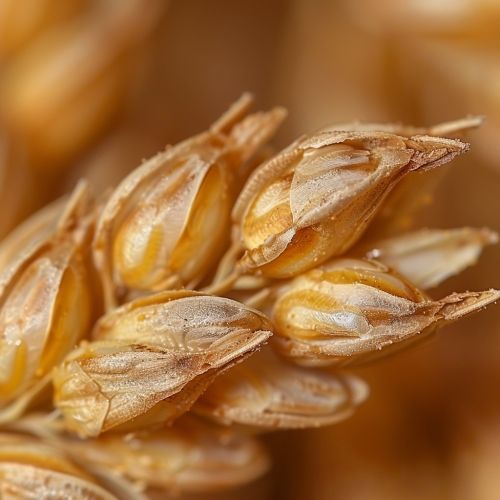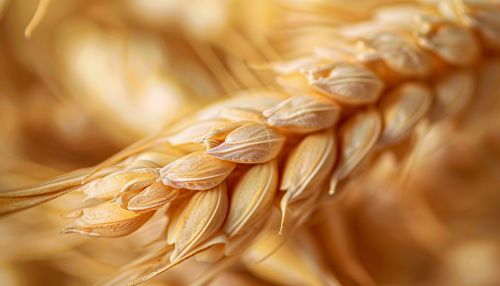Diastase
Introduction
Diastase refers to a group of enzymes that catalyze the breakdown of starch into maltose. These enzymes are produced naturally in plants, animals, and microorganisms. The term "diastase" is derived from the Greek word "diastasis," meaning "separation." This is a nod to the enzyme's ability to separate complex molecules into simpler ones.


History
The discovery of diastase dates back to 1833 when French chemists Anselme Payen and Jean-François Persoz isolated the enzyme from malt solution. This marked the first time an enzyme was isolated, making diastase the first enzyme to be discovered. The discovery of diastase played a significant role in the development of enzyme science and paved the way for further research into enzymes and their functions.
Production
Diastase is produced in various organisms, including plants, animals, and microorganisms. In plants, it is typically found in seeds and is responsible for the germination process. In animals, diastase is present in the saliva and pancreas, where it aids in the digestion of carbohydrates. Microorganisms, such as yeast and bacteria, also produce diastase to break down complex sugars into simpler ones for energy.
Types and Functions
There are two main types of diastase: alpha and beta. Alpha-diastase breaks down starch into dextrins and a small amount of maltose, while beta-diastase converts the dextrins into maltose. Both types of diastase play a crucial role in the digestion of starches and are essential for maintaining overall health.
Applications
Diastase has a wide range of applications in various industries. In the food industry, it is used to break down starches in grains to produce maltose, which is then used to sweeten foods and beverages. In the pharmaceutical industry, diastase is used in digestive aids to help break down starches in the stomach. It is also used in the brewing industry to convert starches in barley into fermentable sugars.
Health Benefits
Diastase has several health benefits, particularly in aiding digestion. It helps break down complex carbohydrates into simpler sugars, making them easier to digest. This can help alleviate symptoms of indigestion and improve overall gut health. Additionally, diastase may help regulate blood sugar levels by slowing down the absorption of sugar into the bloodstream.
Safety and Side Effects
While diastase is generally safe for consumption, excessive intake can lead to digestive issues such as bloating, gas, and diarrhea. Individuals with a known allergy to molds should avoid diastase, as it is often derived from mold sources. As with any supplement, it is recommended to consult with a healthcare professional before starting a new regimen.
